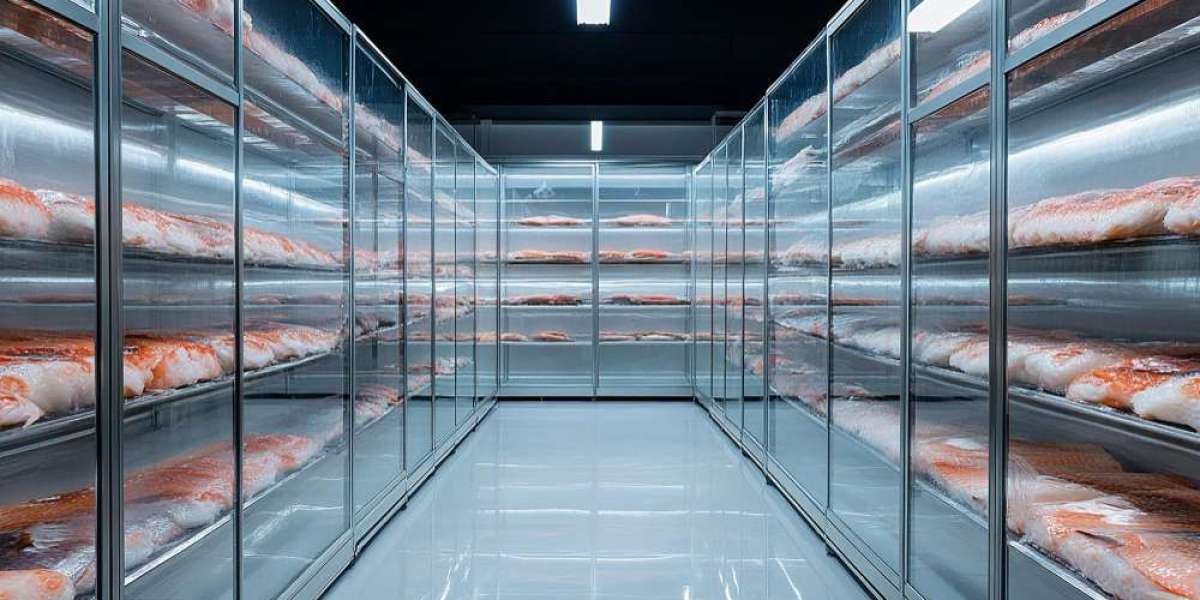The rising demand for preserving perishable goods and supporting the growing food supply chain in the Philippines has increased the need for efficient cold storage facilities. For this reason, epoxy resin in the Philippines has gained popularity in these projects for its durability, hygiene, and cost-effectiveness.
Now, let's look at how these floors contribute to the development of these facilities in the country, focusing on technological innovations, operational advantages, and notable case studies that showcase current trends in the industry.
The Increasing Demand for Cold Storage Facilities
Impact of Market Demand and Supply Chain Trends
In the Philippines, rising demand for fresh produce, seafood, pharmaceuticals, and other temperature-sensitive goods reflects consumers’ preference for fresher, healthier options. Cold storage facilities preserve these products from farm to table by reducing spoilage, extending shelf life, and cutting food waste. They are crucial in a country where supply chains have often been inefficient.
What's more, cold chain logistics is becoming increasingly important to the economy, supporting both local markets and exports. Tropical fruits for instance, and seafood exports, depend on strict temperature control to maintain freshness during transit, making reliable cold storage indispensable.
Influence of Regional and Global Factors
The COVID-19 pandemic accelerated the push for improved cold storage as supply chains were disrupted and demand for frozen and refrigerated goods became popular. This led businesses and government bodies to invest in modern facilities using advanced materials and technology.
In addition to this, growth in food processing and distribution networks in the country rely heavily on dependable cold storage facilities. This aligns with global goals to improve food security, sustainability, and supply chain innovation.
Advantages of Epoxy Resin in Cold Storage Environments
Durability and Resistance Characteristics
Cold storage floors face harsh conditions like cold, moisture, and temperature swings that damage normal materials. However, with epoxy-based coatings, it can resist these stresses well, preventing cracks and peeling, keeping floors strong and reducing repair needs.
Hygiene and Safety Benefits
These floors create smooth, seamless surfaces that block dirt and bacteria buildup, helping meet food safety standards. With added antimicrobial properties, they’re easy to clean and support strict hygiene to avoid contamination.
Savings and Upkeep
These resin floors require less upkeep than concrete or tiles because they resist stains and wear more effectively. This lowers cleaning time and repair costs, making them an economical, yet durable choice for cold storage facilities.
Technological Innovations in Epoxy Resin Flooring
Advances in Material Formulations
New epoxy resin technologies have improved flooring for cold storage. Modern epoxy blends stick better and are more flexible. This helps the floor handle temperature changes without cracking.
These new formulas also resist thermal shock and humidity better. Some include additives that increase chemical resistance and reduce slipperiness. This improves both durability and safety.
Installation Techniques Tailored for Cold Storage
Proper installation is key to getting the most from epoxy resin floors. Specialized methods ensure the coating sticks well and is evenly applied. This is important for cold storage floors to perform well.
Professional installers use moisture barriers and primers to stop vapor from passing through. Vapor is a common problem in refrigerated spaces and can cause flooring to fail. They also control curing times and the environment during installation. This helps create a smooth, durable finish.
Sustainability and Operational Impact
Extending Facility Lifespan
This flooring solution protects cold storage structures from corrosion and wear caused by cold, damp conditions. It acts as a durable barrier that reduces damage and the need for costly repairs. This also helps cut down on material waste and supports more sustainable, eco-friendly building practices.
Enhancing Food Safety and Quality
Maintaining food safety in these facilities can be difficult, but with these floors, businesses can maintain hygienic conditions, as well as easy-to-clean surfaces that prevent contamination.
Their resistance to chemical spills and stains make sure no harmful residues affect sensitive products like pharmaceuticals and premium foods, helping facilities meet strict safety standards.
Case Study Highlights: Philippine Cold Storage Projects
Project Overview and Objectives
Several cold storage facilities in the Philippines have successfully used this flooring to achieve durable, hygienic, and economical surfaces that comply with both local and international standards.
For instance, a major seafood storage site in Luzon applied epoxy-based coatings to extend floor life, enhance sanitation, reduce maintenance downtime, and improve safety with slip-resistant finishes.
Implementation and Results
The flooring installation involved thorough surface preparation, moisture barrier application, and multiple layers of this flooring solution to guarantee a smooth, durable finish. Despite the high humidity and tight timelines, the project was completed on schedule with strong adhesion.
Likewise, post-installation reviews confirmed the floors withstood heavy forklift use and temperature changes. Cleaning also became easier and maintenance costs decreased, validating these floors as an ideal solution.
Lessons Learned and Best Practices
These projects highlight the importance of selecting the appropriate flooring formula, while partnering with skilled installers familiar with cold storage demands.
On top of that, proper surface prep and environmental control during application are all essential, as is following maintenance protocols to preserve floor performance and hygiene.
Key Takeaway
Ideal for cold storages, epoxy resin in the Philippines offers durability, hygiene, and cost-efficiency that meet the current market demands and regulations. As cold chain infrastructure expands, this flooring will continuously support sustainable growth and product safety. Ultimately, this case study emphasizes this floor's ability to handle constant usage while serving as a model for future projects locally and beyond.








